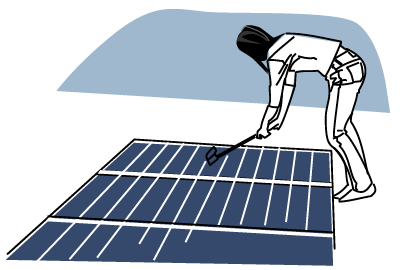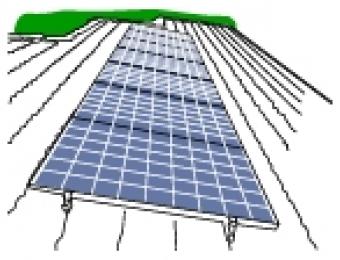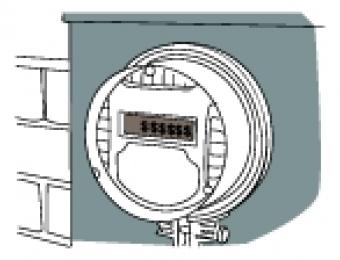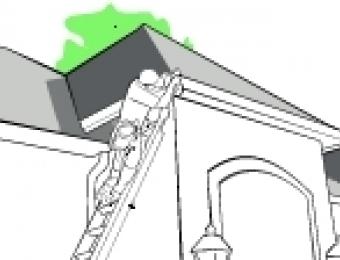
Solar panels are built to withstand constant exposure to the elements, but from time to time they will need to be cleaned to maintain maximum efficiency. A dirty solar panel will generate considerably less power, and if you live in a dusty area or one with a lot of leaf litter, you will need to keep an eye on them to make sure they are clean and clear.
Safety first
There are a number of things you'll need to consider when it comes to safety; cleaning a solar panel involves introducing water to an electrical system, typically located high up on a roof. The first recommendation we can make is that you don't even try it yourself unless you're trained to work at heights, wearing the right safety gear, and have all of the necessary instruction from the manufacturer and installer.
A misstep could easily send you off and injure or kill you; there's a very good reason that tradespeople go through the necessary training and wear the right safety gear when they get up on roofs! Commercial solar panel cleaning services are available for a fairly reasonable price these days - if you're shopping around for one, weigh the cost of the energy you're losing against the cost of the service.
Manufacturer's instructions
Different systems will have different coatings and materials, and as a result will need to be cleaned with the right cleaning agents and materials. A scourer, for example, may damage the panels and reduce their efficacy - but so may different cleaning chemicals. If you're working with soapy water be extremely careful with your footing.
If you are able to access your solar panels safely (perhaps even with a telescopic brush), you'll still need to be extremely careful because you're working with high powered electrical equipment. Check the maintenance advice that came with your solar panels - or if you can't do that, get some written instructions from the company that supplied them to you before you attempt to clean them.
You should always fully switch off any electrical systems before you attempt to clean them. If there are any cracks in the panels, the wiring underneath could be exposed, which could deliver a powerful electric shock if still connected to the battery when you wash them. Likewise, if you have a transformerless inverter, there's a risk of electrostatic shock if the frame on the panels isn't properly earthed. And even if they are switched off, there's a good chance that the solar panels will be dangerously hot.
A properly trained solar panel cleaner will be well aware of the risks involved, will work methodically with the right safety precautions, and will offer a warranty on his or her services for extra peace of mind.
Frequency, materials and technique
Solar panels should be cleaned around every six months under normal conditions, as dust build-up and other detritus like bird poo can reduce a panel’s efficiency even if it's not completely obvious how dirty the panel is. There's nothing stopping you from cleaning your panels more frequently, but it's worth considering that the more contact you have with the panels, the greater the risk that you'll damage them.
Most solar panels are made of toughened glass which has a coating that's susceptible to scratching, so under no circumstances should abrasives be used. The cleaning implement of choice is normally a soft brush; a scour pad is too abrasive, while a sponge or squeegee will not get at the tougher baked in stains. Plain water is normally used to avoid any chemical residue build up from a soap or cleaning chemicals.
Small circular strokes are normally sufficient to loosen most of the dirt to the point where it can be hosed off or washed away. The panels are normally dried off as soon as possible after washing to prevent any calcium deposits in the water from building up. A glass polishing cloth or similar is normally used for this purpose.



